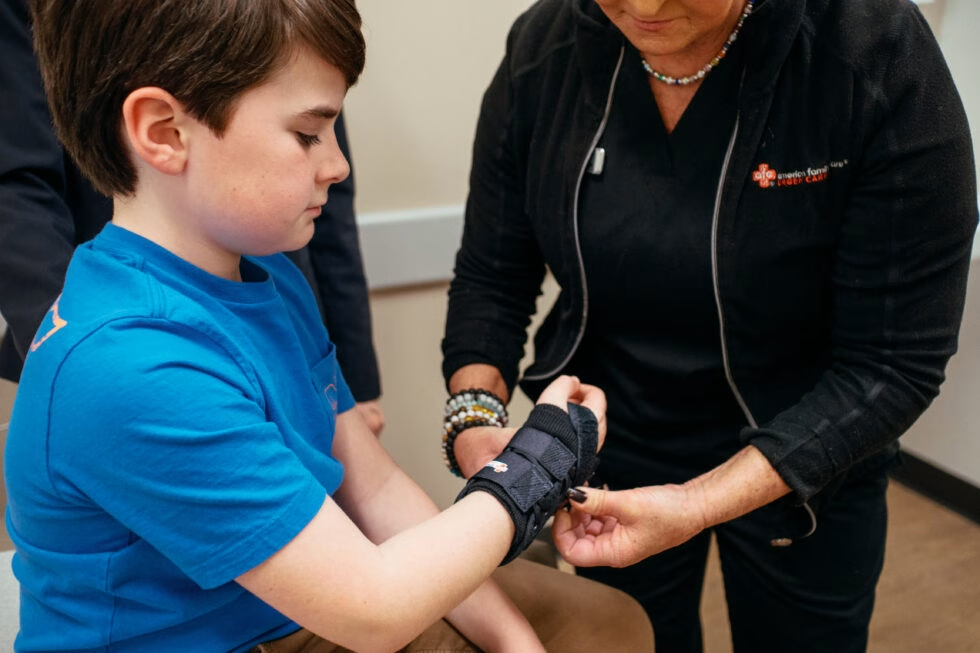
Confused about cold and flu? Learn how to distinguish between their symptoms and when to seek help at urgent care near you!
Whether you’re exploring the scenic trails at the Athens Regional Park or enjoying the McMinn County Living Heritage Museum, cold and flu symptoms can slow you down. If you start feeling under the weather, visit AFC Urgent Care Athens for prompt care and treatment.
You’re feeling under the weather, with a sore throat and stuffy nose, but now you’re wondering—is it just a cold, or could it be the flu? Knowing the difference between these two common illnesses is important, especially when it comes to getting the right treatment and avoiding complications.
Cold vs. Flu: What’s the Key Difference?
Both the common cold and the flu affect the respiratory system, which can make it tricky to tell them apart. However, there are some key differences that can help:
- Onset: Colds usually come on slowly, with symptoms like a scratchy throat or mild congestion building over a few days. The flu, on the other hand, often strikes suddenly. You may feel fine in the morning but be hit with a high fever, chills, and body aches by the evening.
- Severity: While colds are generally mild, causing discomfort but not usually knocking you off your feet, the flu can leave you bedridden. It often causes severe body aches, headaches, and extreme tiredness that can last for days.
- Duration: Cold symptoms usually last about a week, with the worst symptoms peaking around day 3 or 4. The flu, however, can linger for two weeks or more, and the fatigue may stick around even longer, affecting your ability to return to normal activities.
Cold Symptoms to Watch For
If you have a cold, you might experience:
- Sneezing: A key sign of a cold, but rare with the flu.
- Runny nose: Usually clear mucus that becomes thicker as the cold progresses.
- Sore throat: Common in the first few days of a cold.
- Cough: Often mild and usually not persistent.
- Mild fatigue: You might feel tired, but it’s not as debilitating as with the flu.
While a cold can be uncomfortable, it’s typically not severe, and most people can manage the symptoms with over-the-counter remedies and home care.
Flu Symptoms to Watch For
Flu symptoms are more intense, often including:
- High fever (above 100.4°F): The flu often starts with a fever, unlike most colds.
- Chills and sweating: Accompanying the fever, these can leave you shivering one moment and drenched in sweat the next.
- Severe body aches: These aches can affect your muscles and joints, making it hard to move comfortably.
- Headaches: Often intense and pounding.
- Extreme tiredness: The fatigue from the flu can leave you feeling exhausted even after a full night’s rest.
- Cough: Usually dry, but it can become more severe as the flu progresses.
Flu symptoms can be more disruptive, making it hard to perform daily tasks and even leading to complications like pneumonia or bronchitis, especially in high-risk groups such as young children, the elderly, or those with chronic health conditions.
Why Does It Matter If You Know You Have a Cold or the Flu?
Knowing whether you have a cold or the flu can help you take the right steps toward recovery. While most colds can be treated at home with rest, hydration, and over-the-counter medications, the flu may require antiviral treatment. Antiviral medications, if taken within the first 48 hours of symptoms, can shorten the duration and reduce the severity of the illness. This is especially important for high-risk individuals who are more prone to complications.
Plus, being able to identify the flu early helps prevent spreading it to others. The flu is highly contagious, so staying home and resting can keep you from passing it to friends, family, or coworkers.
Not Sure What You Have? Visit AFC Urgent Care Athens
If you’re unsure whether you’re dealing with a cold or the flu, or if you’re starting to feel worse, it’s important to get checked out. Visit AFC Urgent Care Athens for a fast diagnosis and flu testing. Our medical team can evaluate your symptoms and get you on the path to recovery—no appointment necessary.


